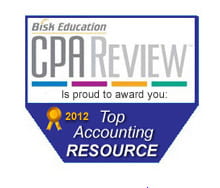Comparison of Total Returns of Berkshire Hathaway, Wesco Financial, and the S&P 500
On August 26, 2010, Warren Buffett’s Berkshire Hathaway announced its offer to purchase the remaining 19.9% of Wesco Financial that it does not already own for approximately $500 million in stock and cash. It would be paying an amount equal to the book value of Wesco at the time of the closing of this transaction. The shares of Wesco rose 12% immediately after this announcement to a level approximating Wesco’s estimated book value at the time of closing, most likely in the fourth quarter of 2010.
Berkshire Hathaway has owned 80.1% of Wesco for decades. Charlie Munger, Vice Chairman of Berkshire Hathaway, has served as the Chairman and President of Wesco over this time period. Since Wesco Financial closely resembles Berkshire Hathaway in terms of its businesses (e.g., property and casualty insurance companies) and equity investments, for many years prior to Berkshire’s January 20, 2010 stock split of its class B shares, it was considered to be the “poor man’s” version of Berkshire. Its share price was substantially lower than Berkshire’s (either Class A or Class B shares). For example, on December 1, 2009, Berkshire Hathaway A closed at $99,200 per share, Berkshire B at $3,286, and Wesco at $343. However, as a result of the recent 50-for-1 stock split of Berkshire B, Wesco is now (September 3, 2010) more expensive per share ($360.10) than is Berkshire B ($81.61).
As of December 31, 2009 Wesco’s investments in marketable equity securities were among Berkshire Hathaway’s largest. They consisted of Procter & Gamble ($378 million), Coca-Cola ($411 million), Wells Fargo ($341 million), Kraft Foods ($272 million), and US Bancorp ($225 million). Since Berkshire Hathaway owns 80.1% of Wesco, these holdings are included in Berkshire Hathaway’s 13F filings with the SEC (and discussed in the posting below).
From the Wesco 2009 Annual Report, Charlie Munger states: “We repeat our standard warning. Business and human quality in place at Wesco continues to be not nearly as good, all factors considered, as that in place at Berkshire Hathaway. Wesco is not an equally-good-but-smaller version of Berkshire Hathaway…each dollar of book value at Wesco continues plainly to provide much less intrinsic value than a similar dollar of book value at Berkshire Hathaway. Moreover, the quality disparity in book value’s intrinsic merits has, in recent years, continued to widen in favor of Berkshire Hathaway.”
So, has Charlie Munger’s “standard warning” of Wesco’s merits relative to those of Berkshire Hathaway proven to be correct? How have the shares of Berkshire Hathaway performed relative to those of Wesco, and the S&P 500, over the past 1, 3, 5, 10, and 15 years? The table below shows their annualized total returns over these time periods:
Annualized Total Rate of Return (%)
(As of September 3, 2010)
1 yr. 3 yrs. 5 yrs. 10 yrs. 15 yrs.
Berkshire Hathaway A 25.0 1.1 8.1 7.4 11.0
Wesco Financial 19.4 -2.6 1.1 4.6 6.8
S&P 500 12.3 -7.1 0.2 -1.3 6.5
Source: Morningstar
As can be seen from the above table, Warren Buffett’s Berkshire Hathaway has consistently outperformed both Wesco Financial and the S&P 500 over the time periods shown. Wesco Financial also outperformed the S&P 500 for each of the time periods.




